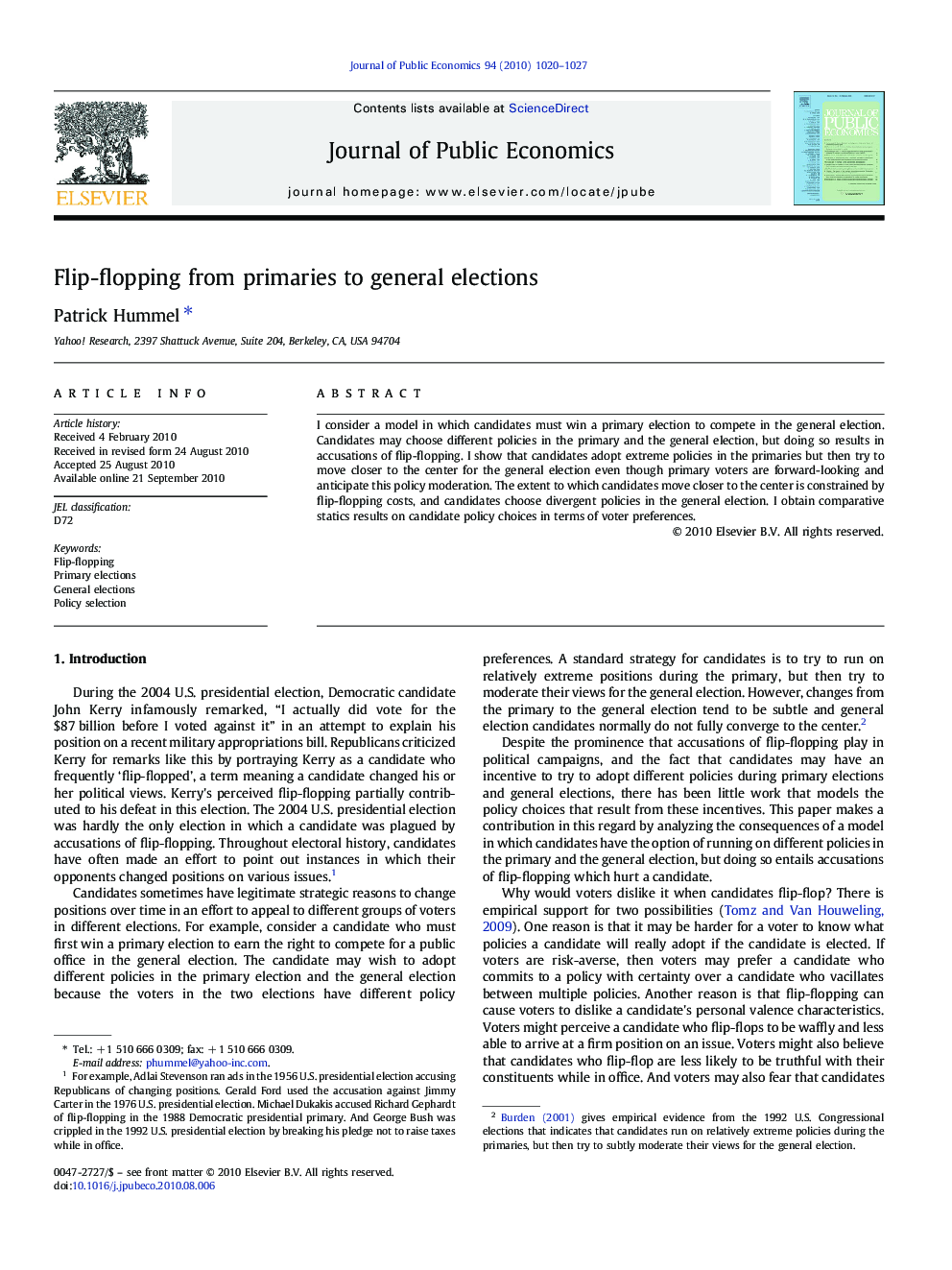| Article ID | Journal | Published Year | Pages | File Type |
|---|---|---|---|---|
| 969816 | Journal of Public Economics | 2010 | 8 Pages |
Abstract
I consider a model in which candidates must win a primary election to compete in the general election. Candidates may choose different policies in the primary and the general election, but doing so results in accusations of flip-flopping. I show that candidates adopt extreme policies in the primaries but then try to move closer to the center for the general election even though primary voters are forward-looking and anticipate this policy moderation. The extent to which candidates move closer to the center is constrained by flip-flopping costs, and candidates choose divergent policies in the general election. I obtain comparative statics results on candidate policy choices in terms of voter preferences.
Related Topics
Social Sciences and Humanities
Economics, Econometrics and Finance
Economics and Econometrics
Authors
Patrick Hummel,
